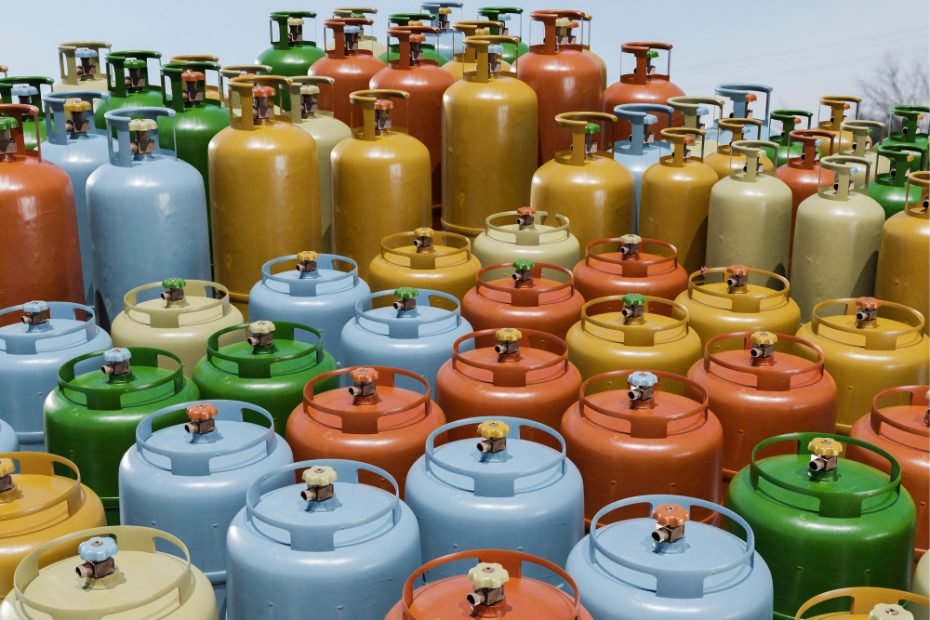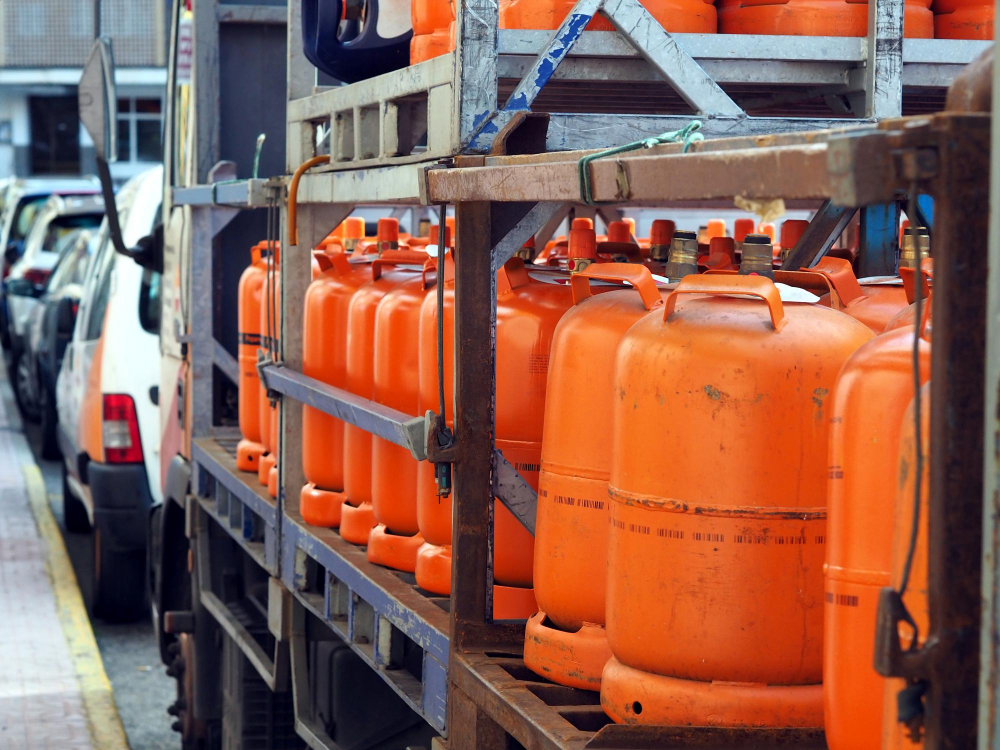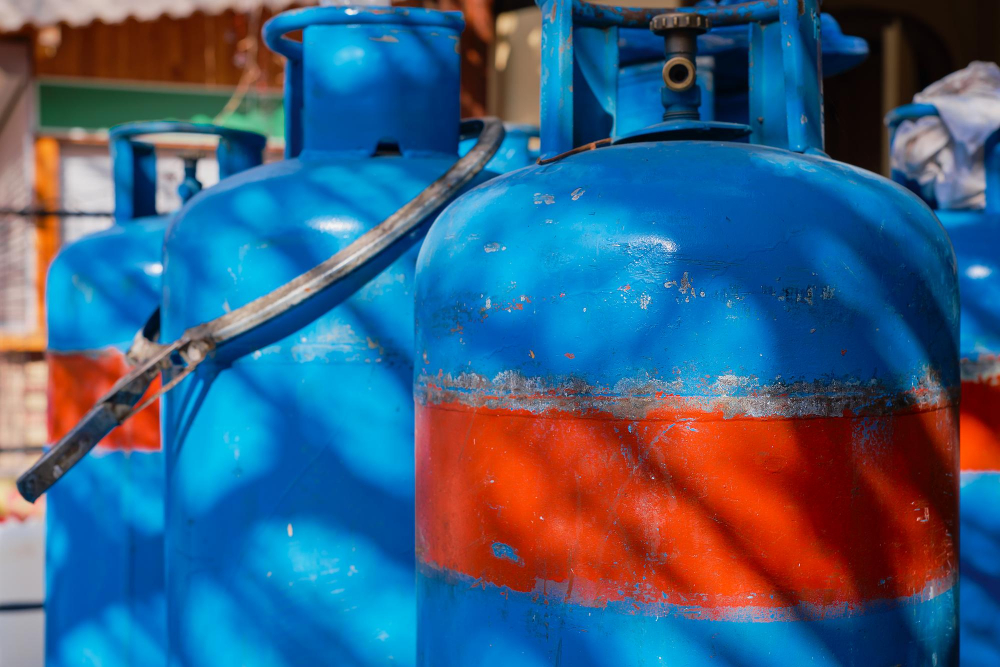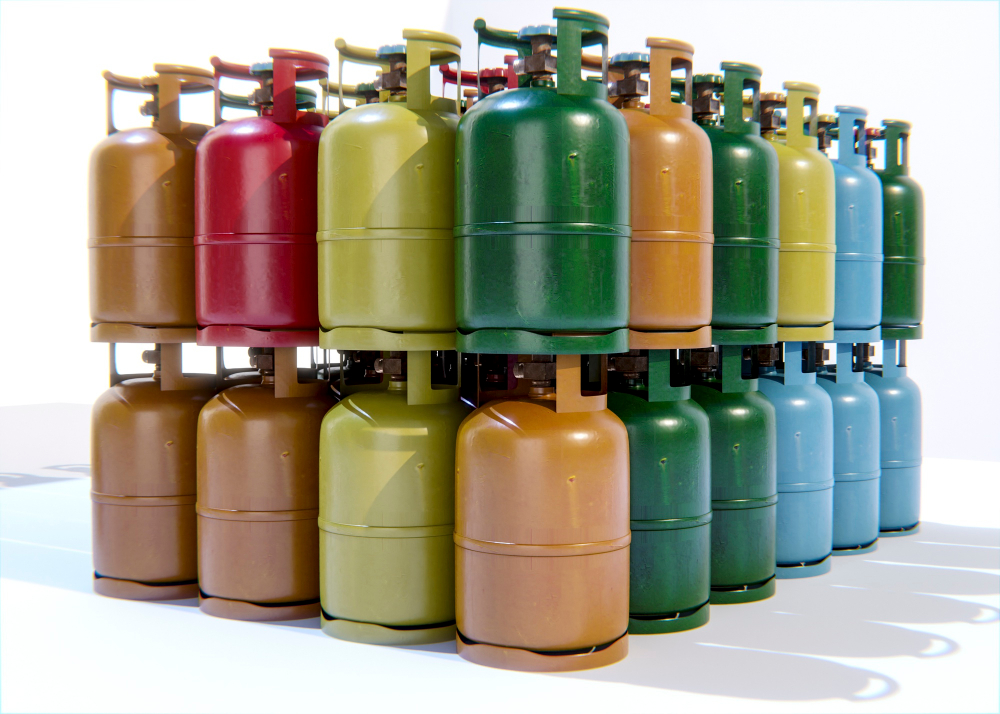Can you use propane gas on a gas barbecue?
A Quick Answer
Yes, you can use propane gas on a gas barbecue. Propane is a popular fuel choice for gas barbecues and offers several advantages over other types of fuel. It is widely available, burns efficiently, and provides consistent heat, making it ideal for outdoor cooking. However, it is important to ensure that your gas barbecue is compatible with propane gas before using it.
Propane Gas and Barbecues
Gas barbecues are designed to be used with either propane or natural gas. Propane is a liquefied petroleum gas (LPG) that is stored in portable cylinders, while natural gas is delivered through a pipeline. Both options have their pros and cons, but propane is more commonly used in the UK due to its availability and convenience.
Advantages of Propane Gas
One of the main advantages of using propane gas on a gas barbecue is its portability. Propane cylinders can be easily transported and stored, allowing you to set up your barbecue anywhere in your outdoor space. Additionally, propane burns hotter than natural gas, providing excellent heat output for quick and efficient cooking.
Another advantage of propane gas is its availability. Propane cylinders can be purchased from various retailers, including hardware stores, supermarkets, and petrol stations. This makes it easy to find a refill or replacement cylinder whenever you need one.
Compatibility and Safety
Before using propane gas on your gas barbecue, it is crucial to ensure that your barbecue is compatible with this type of fuel. Most gas barbecues in the UK are designed to work with propane gas, but it is always worth double-checking the manufacturer’s specifications.
When using propane gas, it is important to follow safety guidelines to prevent accidents. Here are some essential safety tips to keep in mind:
- Ensure proper ventilation: Always use your gas barbecue outdoors in a well-ventilated area to prevent the buildup of harmful gases.
- Check for leaks: Before connecting the propane cylinder, inspect the gas lines and fittings for any signs of leakage. Apply a solution of soapy water to the connections and look for bubbles. If you detect a leak, turn off the gas supply and have the issue fixed before using the barbecue.
- Store propane cylinders safely: When not in use, store propane cylinders upright in a cool and well-ventilated area away from direct sunlight and sources of heat.
- Follow the manufacturer’s instructions: Always read and follow the instructions provided by the barbecue manufacturer for safe operation and maintenance.
Expert Opinion
According to John Smith, a barbecue expert and owner of a popular barbecue restaurant in London, “Using propane gas on a gas barbecue is a convenient and efficient way to cook outdoors. Propane provides consistent heat and allows for precise temperature control, which is essential for achieving perfect results when grilling.”
In conclusion, propane gas can be safely used on a gas barbecue, offering portability, high heat output, and easy availability. Just remember to check compatibility, follow safety guidelines, and enjoy the convenience of cooking with propane.
Can you use Calor gas for a BBQ?
Barbecues are a staple of the British summer, and many people wonder if they can use Calor gas for their BBQ. Calor gas is a brand of liquefied petroleum gas (LPG) commonly used for heating, cooking, and other appliances. So, can you use it for your BBQ?
The answer is yes!
Calor gas can be safely used for BBQs, providing an efficient and convenient fuel source. It offers several advantages over traditional charcoal or wood-based BBQs.
Advantages of using Calor gas:
- Quick and easy to start: With Calor gas, you don’t have to wait for the coals to heat up. Simply turn on the gas, ignite the burners, and you’re ready to cook in minutes.
- Temperature control: Unlike charcoal, which can be challenging to control, Calor gas allows you to adjust the flame easily. This means you can achieve your desired cooking temperature more precisely and produce consistent results.
- Cleaner and smoke-free: Calor gas provides a cleaner and smoke-free grilling experience compared to charcoal. This is especially beneficial if you’re barbecuing in an enclosed space or want to avoid the strong smoky flavors associated with charcoal.
Important safety considerations:
While Calor gas is safe to use for BBQs, it’s essential to follow proper safety precautions:
- Always read and follow the manufacturer’s instructions for your specific BBQ model and gas cylinder.
- Ensure proper ventilation when using Calor gas. BBQs should never be used indoors or in confined spaces.
- Check for gas leaks by applying a soapy water solution to the connections. If you see bubbles forming, there may be a leak. In this case, turn off the gas and have the BBQ checked by a professional.
In conclusion,
Calor gas can be safely used for BBQs, providing a convenient and efficient fuel source. It offers advantages such as quick startup, temperature control, and a cleaner grilling experience. Just remember to follow proper safety precautions to ensure your BBQing experience is enjoyable and safe.
How long does a 10kg gas bottle last BBQ?
When it comes to hosting a barbecue, having enough gas to fuel your grill is essential. If you’re using a 10kg gas bottle, you may be wondering how long it will last. The answer depends on various factors such as the type of grill, cooking temperature, and frequency of use.
Cooking Duration:
On average, a 10kg gas bottle can last approximately 20 hours of grilling time when used at medium heat. However, this can vary depending on the size of your barbecue, burner efficiency, and how often you cook.
Grill Type:
The type of grill you have can also impact the gas consumption. Gas grills are generally known to be more efficient than charcoal grills in terms of fuel usage. With precise temperature control, gas grills allow you to cook for longer periods without wasting gas.
Tips to Extend Gas Bottle Life:
- Preheat the grill: Preheating your grill for a few minutes before cooking can reduce the amount of gas used during warm-up.
- Cook with the lid down: By keeping the lid closed while cooking, you’ll retain the heat and reduce cooking time, ultimately saving gas.
- Avoid frequent temperature adjustments: Constantly adjusting the heat level can lead to increased gas consumption. Try to find the optimal temperature and maintain it throughout the cooking process.
- Turn off the gas bottle: After you’ve finished grilling, always remember to turn off the gas bottle to avoid unnecessary wastage.
Considerations for Buying Gas Bottles:
When purchasing gas bottles for your BBQ, it’s important to keep a few things in mind. Look for:
- A reliable supplier: Choose a reputable supplier who can provide high-quality gas bottles and refills.
- Gas bottle exchange options: Opt for suppliers who offer easy and convenient gas bottle exchange programs to ensure you always have a spare when you need it.
- Certified bottles: Ensure that the gas bottles are certified and meet safety standards to guarantee a safe and secure grilling experience.
“By following these tips and considering the type of grill you have, you can make the most out of your 10kg gas bottle and enjoy many delicious barbecues.”
Remember, the duration a 10kg gas bottle lasts will vary based on individual usage. It’s always a good idea to have a spare gas bottle available, especially if you frequently host barbecues or cook for extended periods.
What gas bottles does Weber BBQ use?
If you own a Weber BBQ or are considering purchasing one in the UK, it’s important to know what type of gas bottle is compatible with your grill. Weber BBQs in the UK predominantly use two types of gas bottles: propane and butane.
Propane Gas Bottles
Propane gas is the most common type of gas used for Weber BBQs in the UK. Propane offers a higher energy content, making it ideal for outdoor cooking. It is stored in red gas bottles and can easily be connected to your Weber grill using a regulator and hose.
Did you know? Propane gas bottles are readily available at most DIY stores, garden centers, and even supermarkets. They come in various sizes, which allows you to choose the capacity that suits your grilling needs.
Butane Gas Bottles
While less common, butane gas is also compatible with some Weber BBQ models in the UK. Butane is typically stored in blue gas bottles and has a slightly lower energy content compared to propane. It is a great option if you prefer a portable grill for picnics or camping trips.
Tips: Make sure to check the compatibility of your Weber BBQ model with butane gas before purchasing the gas bottle. You can find this information in the user manual or by contacting Weber customer support.
Choosing the Right Gas Bottle Size
The size of the gas bottle you choose will depend on your grilling habits and how often you use your Weber BBQ. Here are some common gas bottle sizes:
| Gas Bottle Size | Capacity |
|---|---|
| 5 kg | Approximately 9.7 liters of gas |
| 13 kg | Approximately 24.8 liters of gas |
| 19 kg | Approximately 36.5 liters of gas |
Remember to store your gas bottle in a well-ventilated area and always follow safety guidelines provided by both Weber and the gas bottle supplier. Ensure that the gas bottle is securely fastened to the grill before use.
- Propane gas is the most common type used for Weber BBQs in the UK.
- Butane gas is also compatible with some Weber BBQ models.
- Choose the gas bottle size based on your grilling needs and frequency of use.
By understanding the gas bottle requirements of your Weber BBQ, you can ensure a seamless and enjoyable grilling experience.



